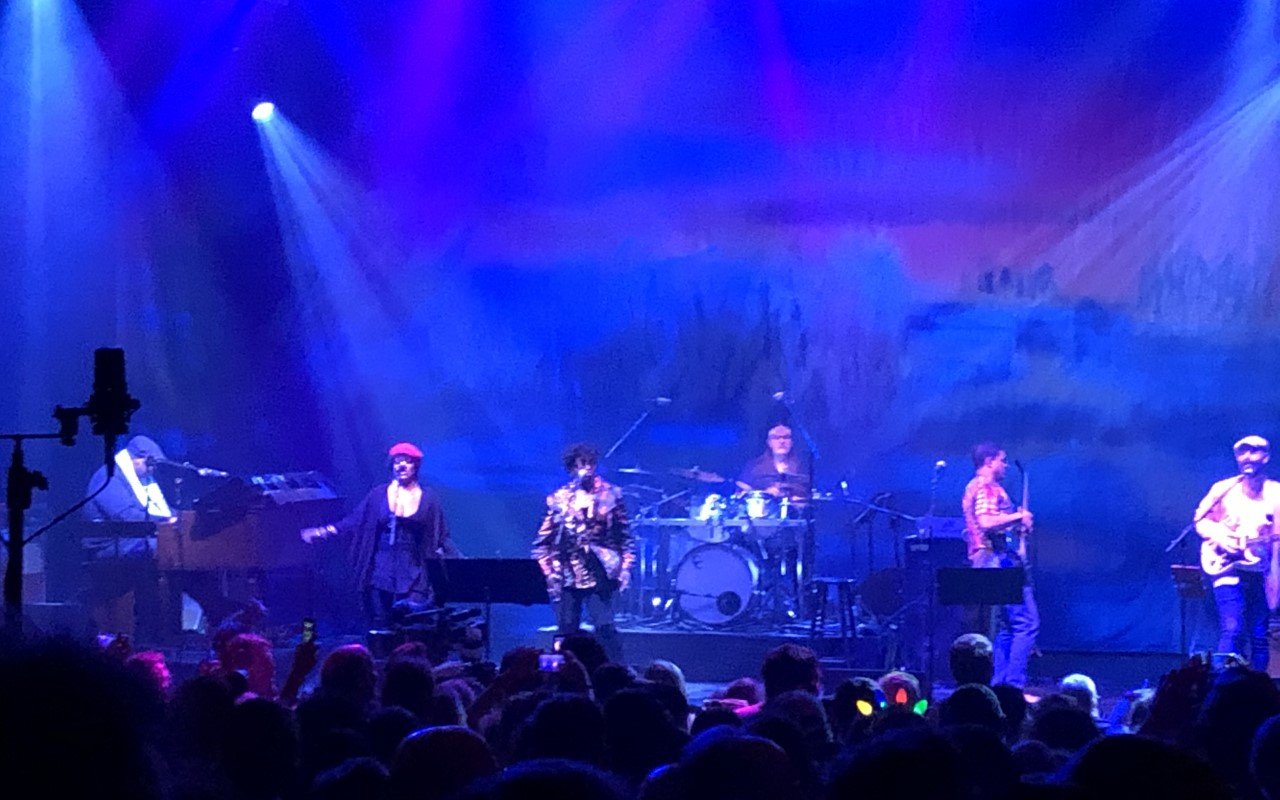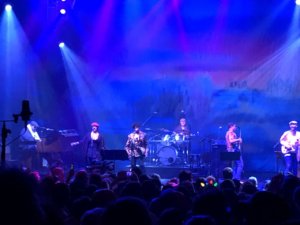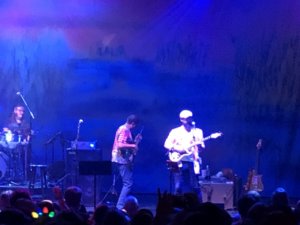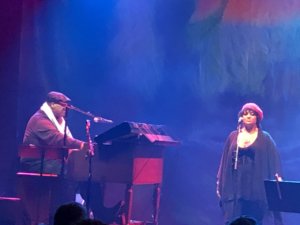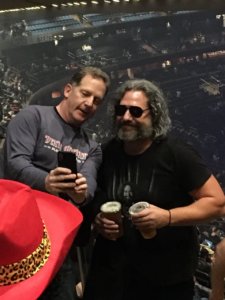This has been a very tough five months for lovers of live music, for artists and for anyone connected with the music industry, including roadies, sound and light engineers, ushers, food and merch vendors and anyone who owns a food establishment near a concert venue. The disappearance of live music happened so abruptly!
The last big concert to take place in NYC before Covid-19 struck was “The Brothers: Celebrating 50 Years of the Allman Brothers Band” at Madison Square Garden. Warren Haynes shared the story of the shift from great live music to “limited” music to no music in “The Power of Live” (June 2020) issue of Relix Magazine.
Two days after the packed MSG show, Haynes, Jackson Browne, Dave Matthews and others played the Love Rocks NYC benefit concert at the Beacon Theater in NYC—before a small audience of family and friends—due to coronavirus concerns. That was it—no more live music. So sad.
I know that feeling of disappointment. I was supposed to attend some of the much anticipated shows celebrating Grateful Dead bassist Phil Lesh ‘s 80th birthday at The Capitol Theatre in Port Chester March 13 – 15, and I was planning on seeing several Dead and Co shows this summer.
Admittedly, some musicians have done their best to make their live music available to fans during these tough times. Each week, fans enjoy Phish’s “Dinner and a Movie,” Weir Wednesdays (Bob Weir and the Wolf Brothers), Dave Matthews Band (also on Wednesdays), Moe, String Cheese Incident, Dead and Co (Saturday nights) and more. There are many free weekly concerts offered online.
And some musicians have gotten very creative—Ben Folds performed each Saturday night for about 13 weeks from a rented apartment in Sydney, Australia. Holly Bowling has performed The Living Room Sessions regularly, where she plays whole sets of Dead and Phish shows. And there are others.
Trey Anastasio of Phish was asked if he and his band would consider playing a show on Zoom, where he, Fish, Page and Mike are in separate “squares.” He dismissed it. He speaks frequently of just how much the musicians and audience play off of each other. He even pointed out in the Relix issue and in interviews that he drives his band crazy by never knowing what song he will open with—he waits to “feel” the vibe of the crowd before deciding.
So, what is it about live music that makes it so important—and magical—for fans and performers? Obviously, on a practical level, performing live is a big part of how musicians and their crews pay the bills. But the live music experience is so much more than a financial transaction between performers and fans.
Most performers love what they do, they give it their all each night, and they play off the electricity of their fans. This is what keeps musicians like Bob Weir, Phil Lesh, Paul McCartney, Mick Jagger and Pete Townsend performing in to their 70s and even 80s.
In the aforementioned Relix issue, Don Was, president of Blue Note records, a famed producer and bass player who has played with Bob Weir and Jay Lane in the Wolf Brothers, looks at live music’s draw “in both scientific and mystical terms.” He notes, “There’s a body of work that establishes how live music creates social bonding and a wave of synchronicity. There’s a lot of research that indicates we experience greater enjoyment in the presence of live music and by being part of a larger group. A lot of it just has to do with dancing, which is why it transcends genres…I think any body movement encodes emotional information and, when you experience that with others, there are social consequences. You establish a rapport, a sense of community—people like each other more, they trust each other more, and they cooperate more.”
He goes on to say, “There’s something about the presence of the performer in the room that makes a difference. …it’s a sense that the audience has the ability to influence the performance…. everyone gets swept away, and I see it as a spiraling tornado.”
I think Don Was hits the nail on the head—and he helps us understand just WHY we are missing live music so much. It is the shared experience, the all-in-it-together feeling, the job, the swaying and dancing. We are all missing these experiences of connecting with other music lovers, and with the musicians themselves.
On one hand, the return to any in person still feels very far off. How will it possible for tens of thousands to pack MSG for a Springsteen concert, or LockN or Coachella for a music festival? And we know how smaller clubs are suffering—it is nearly impossible to practice social distancing in a small space, and club owners will never make a profit if the venue is not packed. On the other hand, there are some promising signs ahead.
Check out the City Winery Outdoor Concert Series an hour north of Manhattan, featuring Southside Johnny and the Asbury Jukes, Martin Sexton, Joan Osborne and others. They are following strict safety guidelines:
All guests are required to complete a contactless temperature check and wellness questionnaire prior to entrance, masks or face coverings are required when entering and moving throughout public areas where social distancing is not possible, and seating will be by pods. [“We are no longer seating unaffiliated parties together. As such, tickets for this show will be sold for a single pod seating 2, 4, 8 or 10 people- select the appropriate group size for you and your companions. You're welcome to take off your mask in your pod.”]
And LockN, originally scheduled for June, is still moving ahead in Arrington, VA, from October 2nd-4th. They will also be following New Safety Policies, including masks, social distancing, cashless transactions, health screenings, and extra handwashing and sanitation stations.
Live music is SO important—for fans and musicians. We tip our hats to the musicians who continue to share live music online for their fans, and to City Winery, LockN and others who are doing the best to safely reunite fans and musicians.
See you at the show!


